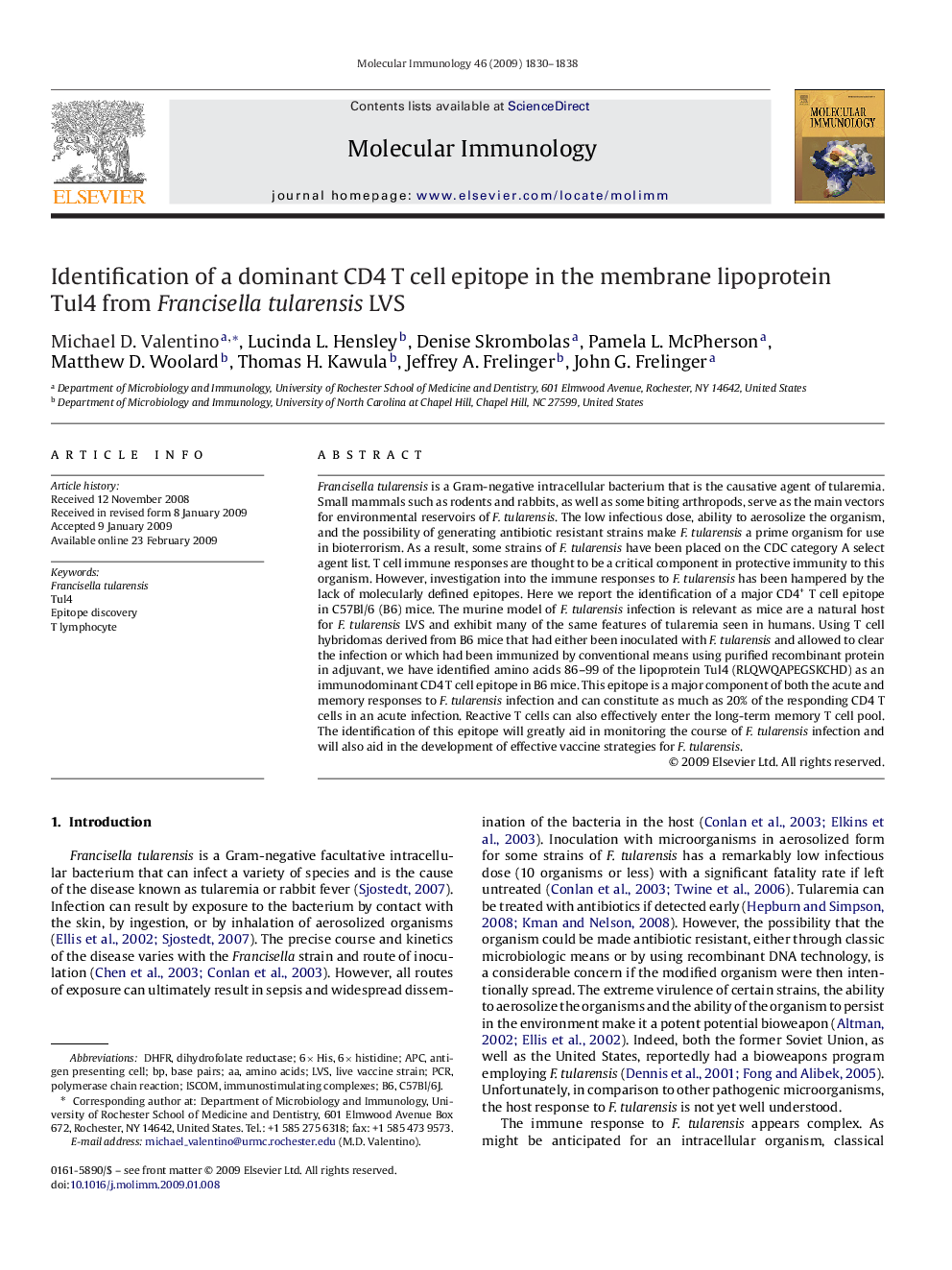| کد مقاله | کد نشریه | سال انتشار | مقاله انگلیسی | نسخه تمام متن |
|---|---|---|---|---|
| 2832207 | 1570744 | 2009 | 9 صفحه PDF | دانلود رایگان |

Francisella tularensis is a Gram-negative intracellular bacterium that is the causative agent of tularemia. Small mammals such as rodents and rabbits, as well as some biting arthropods, serve as the main vectors for environmental reservoirs of F. tularensis. The low infectious dose, ability to aerosolize the organism, and the possibility of generating antibiotic resistant strains make F. tularensis a prime organism for use in bioterrorism. As a result, some strains of F. tularensis have been placed on the CDC category A select agent list. T cell immune responses are thought to be a critical component in protective immunity to this organism. However, investigation into the immune responses to F. tularensis has been hampered by the lack of molecularly defined epitopes. Here we report the identification of a major CD4+ T cell epitope in C57Bl/6 (B6) mice. The murine model of F. tularensis infection is relevant as mice are a natural host for F. tularensis LVS and exhibit many of the same features of tularemia seen in humans. Using T cell hybridomas derived from B6 mice that had either been inoculated with F. tularensis and allowed to clear the infection or which had been immunized by conventional means using purified recombinant protein in adjuvant, we have identified amino acids 86–99 of the lipoprotein Tul4 (RLQWQAPEGSKCHD) as an immunodominant CD4 T cell epitope in B6 mice. This epitope is a major component of both the acute and memory responses to F. tularensis infection and can constitute as much as 20% of the responding CD4 T cells in an acute infection. Reactive T cells can also effectively enter the long-term memory T cell pool. The identification of this epitope will greatly aid in monitoring the course of F. tularensis infection and will also aid in the development of effective vaccine strategies for F. tularensis.
Journal: Molecular Immunology - Volume 46, Issues 8–9, May 2009, Pages 1830–1838